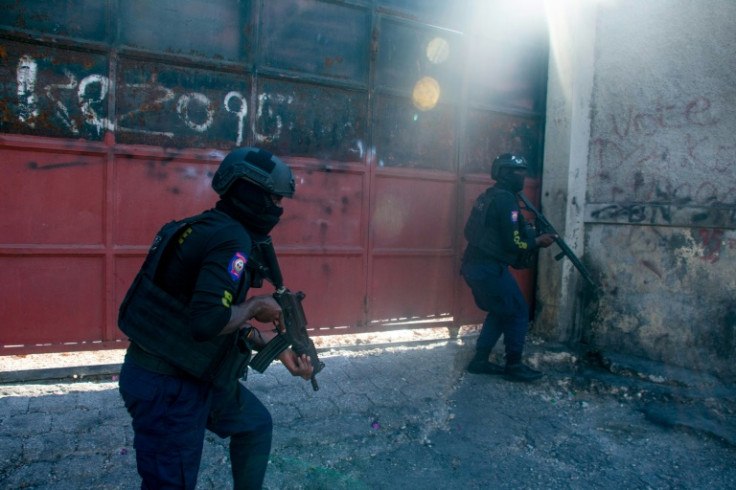
The governing council that aims to oversee a political transition in Haiti vowed Wednesday to restore "public and democratic order" in its first statement to the Caribbean nation wracked by a worsening security crisis.
Impoverished Haiti, which has long grappled with spiraling violence, has been rocked by an uptick in clashes since late February when gangs launched a coordinated offensive and demanded Prime Minister Ariel Henry resign.
"We are determined to alleviate the suffering of the Haitian people, trapped for too long between bad governance, multi-faceted violence and disregard for their perspectives and needs," said the statement from the Presidential Council, which has yet to be officially installed.
Signed by eight of the nine members of the council, it said that -- once in place -- the body will appoint a prime minister who will assist in forming a government to "put Haiti back on the road to democratic legitimacy, stability and dignity."
The statement ended with a plea for unity, warning that Haiti is at a "crucial turning point."
"Together, we will implement a clear plan of action aimed at restoring public and democratic order" by improving security and holding free elections, the statement said.
"The Presidential Council is currently finalizing a document on its organization and mode of operation, including a transparent political agreement between the sectors involved in the process," it continued.
Henry, who has led Haiti since the 2021 assassination of president Jovenel Moise, promised more than two weeks ago to step down after a transitional council is stood up -- though reaching that stage has proved exceedingly difficult due to squabbles among party leaders.
The presidential transition council -- to be composed of seven voting members and two non-voting members -- was first announced on March 11, after emergency meetings between Haitian leaders and several countries and organizations, including the Caribbean regional bloc CARICOM.
It is set to draw its members from Haitian political parties, the private sector and elsewhere, and is to name an interim prime minister and government to set the stage for fresh elections.
In the meantime, Haiti has faced an ongoing humanitarian crisis, with UNICEF warning that "countless children" could die due to malnutrition and a lack of health care.
Nearly five million people -- almost half the country's population -- have been driven into "high levels of acute food insecurity" since a surge in gang-linked violence, according to a report published in March by the Integrated Food Security Phase Classification (IPC).
UNICEF chief Catherine Russell called Tuesday for a return of law and order to Haiti's streets in order to protect the nation's schools, hospitals and "humanitarian spaces."
Kenya, which agreed to lead a long-awaited, UN-approved mission to Haiti to back its security forces as they grapple with the well-armed gangs, has put its plans on hold until the transitional council is in place.




